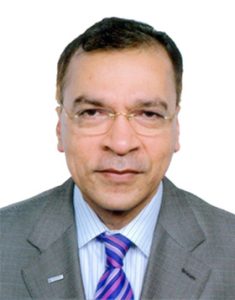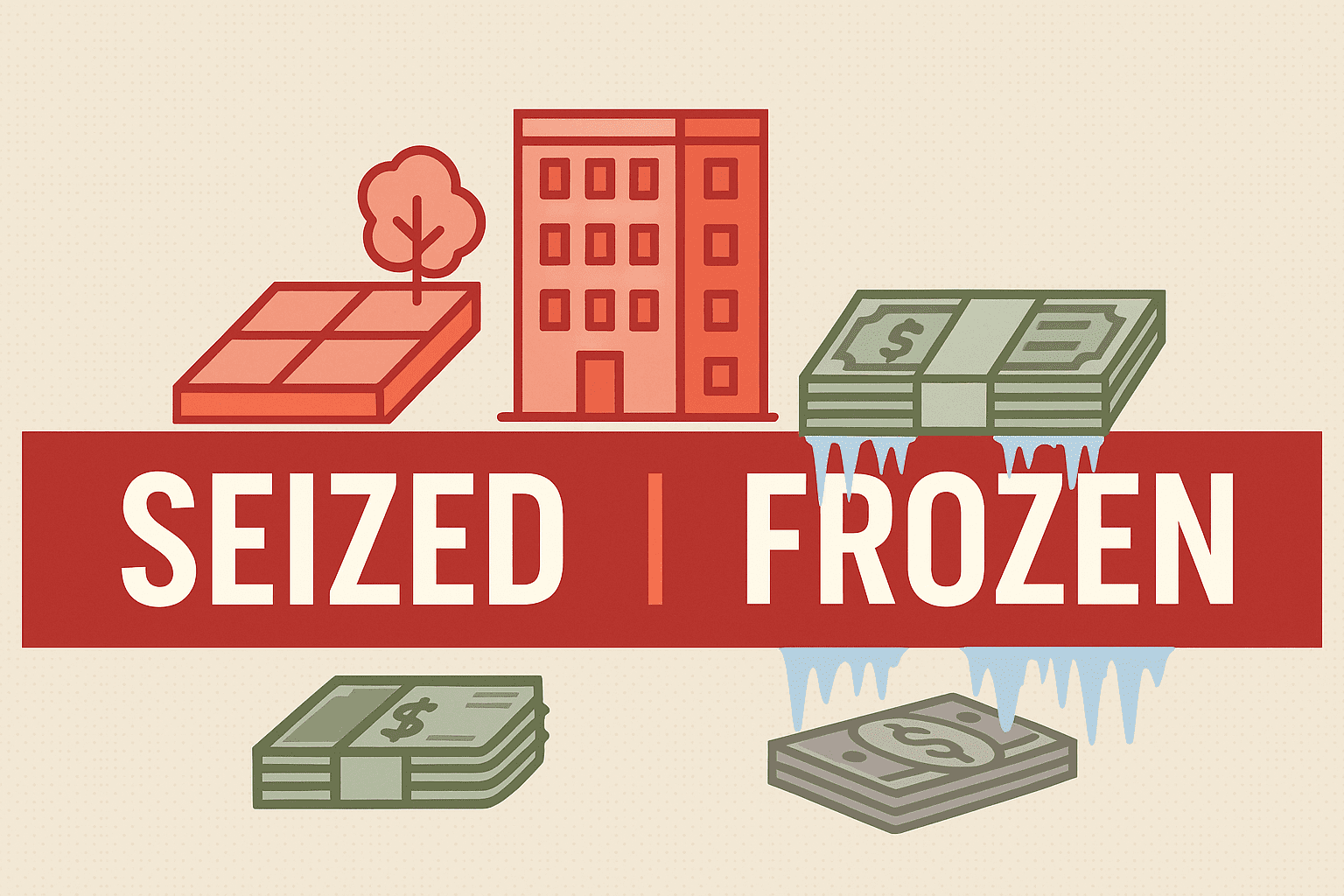Assets worth over Tk 13,000 crore belonging to more than 100 individuals and organisations have been seized or frozen in the nine months since the fall of the Sheikh Hasina government, following a student-led mass upsurge on August 5 last year.
According to sources in the Anti-Corruption Commission’s (ACC) Asset Management Unit, assets worth Tk 12,138 crore have been seized and Tk 773 crore frozen in cash or bank accounts under court orders in connection with corruption cases.
Analysts say this marks a record level of seizures. In comparison, only Tk 361 crore worth of assets were seized last year, while the total for the five-year period between 2020 and 2024 was approximately Tk 3,450 crore.
Further analysis reveals that assets worth Tk 120 crore were seized and Tk 45 crore frozen abroad since the collapse of the Sheikh Hasina administration. However, experts note that such actions remain largely symbolic or limited to paperwork unless the respective countries cooperate in enforcement.
Despite the complexities, the ACC remains optimistic, although seizing assets held abroad by corrupt individuals will require invoking the Mutual Legal Assistance Act.
“This is a reciprocal legal cooperation treaty. The current interim government is working to establish such agreements with various countries. If both sides agree, asset seizures can proceed,” ACC’s senior legal counsel Md. Asif Hasan told Times of Bangladesh.
However, he noted that such action would not be possible without mutual consent.
The ACC is hopeful that the Act, along with bilateral cooperation, will facilitate recovery of assets held overseas. Domestically, they are confident about bringing seized assets into the state exchequer through the successful prosecution of corruption cases.

Yet, challenges remain.
Dr Iftekharuzzaman, Executive Director of Transparency International Bangladesh, acknowledged internal challenges within the ACC, stating that some former officials remain influenced by the previous regime and are reluctant to take bold action.
“There is corruption even within the ACC’s investigations. We have recommended urgent reforms,” said Dr Iftekhar, who also chaired the ACC reform commission formed by the interim government.
With proper government support, he suggested forming a high-powered task force consisting of members from investigative and intelligence agencies to identify and take action against corrupt officials.
“Those found guilty should be dismissed through departmental proceedings and brought to justice through criminal prosecution,” he told Times of Bangladesh.
If these steps are implemented and the government demonstrates political will, he believes the remaining processes will become significantly easier.
How will the law be enforced against the powerful?
In response to how the law will apply to ministers, bureaucrats, and influential figures from the previous regime, Dr Iftekharuzzaman stated that the ACC is now more active than it was during the past 15–16 years, when bureaucratic interference was widespread.
“The current advantage is that the accused are no longer in power, which simplifies matters somewhat,” he said. However, he acknowledged that many of these individuals are currently abroad, creating further complications, and that some problems lie within the ACC itself.
According to ACC sources, the seized assets over the past nine months include 191 acres of land, 28 houses, 38 flats, 15 plots, 23 vehicles, three companies, three ships, and 582 flats in multiple countries including the United Arab Emirates, the United Kingdom, and Slovakia. Foreign currencies seized include $888,000 and €8.62 million belonging to 23 companies.
In addition, 1,010 bank accounts have been frozen, containing Tk 817 crore, alongside shares worth Tk 8,713 crore, 660 grams of gold, $169,000, €55,000, and Tk 9.17 crore across nine BO (beneficiary owner) accounts. Frozen deposits also include $713,000 and €2.87 million.
High-profile individuals whose assets have been seized or frozen include:
High-profile individuals whose assets WERE seized or frozen include former Prime Minister Sheikh Hasina and her sister Sheikh Rehana and their families; former ministers Asaduzzaman Khan, Amir Hossain Amu, Anisul Huq, Dipu Moni, Saifuzzaman Chowdhury, Zunaid Ahmed Palak; adviser Salman F Rahman; former MP and cricketer Shakib Al Hasan; former IGP Benazir Ahmed and his family; ex-DB chief Harun ur Rashid; and former NBR member Motiur Rahman.
Business entities named include Sikder Group, S Alam Group, and Nabil Group.
Who can seize assets?
Supreme Court lawyer Swarna Kanti Das Chowdhury explained to the Times of Bangladesh that asset seizure involves taking legal control of a person’s property by court order. A court-appointed trustee or administrator is then responsible for managing its use and any income it generates.

ACC Director General (Prevention) Md Akhtar Hossain added that the Commission’s asset management unit supervises the seizure process, often in coordination with other government departments based on the asset type.
How are assets seized?
According to ACC lawyer Khurshid Alam Khan, courts can issue seizure orders at any stage of an investigation or trial. If investigators suspect that assets were acquired illegally and could be hidden or transferred, they may request such orders during the investigation phase.
Lawyer Swarna Kanti Das emphasised that seizures must follow due process. Court approval is required, and a legal notice is affixed to the seized property. The owner loses access until a final verdict is issued.
How does the state take ownership of seized assets?
Supreme Court Barrister Omar Faruk explained that if charges are proven, both movable and immovable properties can be transferred to the state. The government may then auction the assets to recover misappropriated funds.
However, experts caution that retrieving foreign assets remains a highly complex legal and diplomatic challenge.


